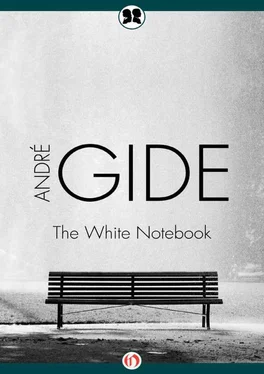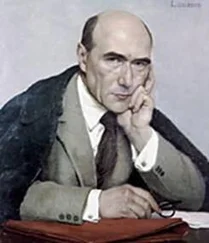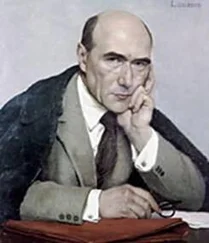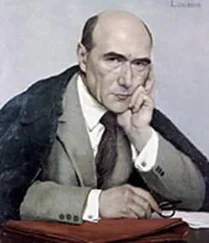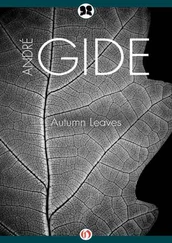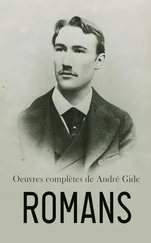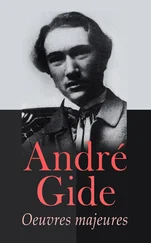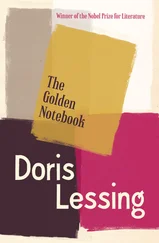“I would like to live fully with only time to pursue me: to eat when hungry, to sleep whenever I chose once my task had been completed. I would wear the white mantle, scapulary and sandals. In my cell I would have a huge oak table and, on it, wide open, a few books; a big lectern for working while standing up; rows of books above the bed. I would read the Bible, the Vedas, Dante, Spinoza, Rabelais, the Stoics; I would learn Greek, Hebrew, Italian; and my mind would take pride in its vitality. There would be orgies of learning, and the mind would emerge stupefied, broken, as did Jacob after his struggle with the Angel — and, like him, the victor. And when exasperated flesh rebelled and erupted in a rash of desires, pain caused by the lash of discipline would soon quell the body! Or a frantic race through the mountain, past cliffs and as far as the snow, until panting flesh cried out for relief, exhausted, vanquished … or a plunge into deep snow — and an extraordinary shiver resulting from the icy contact.” 31
As a very young child I was ignorant of some things to which I had been exposed.
“Later on,” I thought, “I will not have mistresses. All my loves will tend toward harmony.”
I dreamed of nights of love in the presence of the organ. The melody was an almost palpable fiction, like a nebulous Beatrice, fior gittando sopra e d’interno, like a chosen Lady, immaterially pure, with the deep blue folds of her trailing sapphire-studded gown shimmering in the pale light and slowly assuming musical patterns. I hoped that she would receive all my tenderness. I was a child and thought only of the soul; I was already living in a dream world; my soul was freeing itself from my body; and my dream of better things was exquisite. Later I separated them so completely that I am no longer the master; each goes its own way, the soul dreaming of ever more chaste caresses and the body carelessly adrift.
Wisdom would dictate that they be kept in check, that their paths be made to converge, and that the soul not seek distant loves in which the body cannot share.
“They do not complain; they make accusations. They do not explain; they condemn. What they will never understand is the struggle to BELIEVE, waged against impossible odds so long as the slightest degree of reason protests. They think that the will to believe is enough! And the most astounding part is that they think they can believe through reason. What especially outrages me is mock religion; bigotry and pretended mysticism sometimes make me doubt that there is a true religion. Bigots are not aware of the harm that their example can do to those who truly seek after the true God; they are not aware that in their complacency they are often themselves an object of scandal.…” 32
( Midnight , 30 December , 1887)
“Shall I write?… What?
“I am happy.
“I am afraid of forgetting.
“I would like for the memory of my happiness to endure beyond time.
“If only it were possible in the boredom of the tomb to relive life incessantly and to feel gently, as in a dream at night, bitterness and joy — but from such a distance as to cause no more suffering than the memory of griefs.
“I am afraid of forgetting.
“On these pages I wish to preserve — as one preserves dried flowers to recall dissipated perfumes — I wish to preserve the memories of my fleeting youth in order that I may recall it later.
“Today I spoke with her. I told her my radiant dreams and my high hopes. Today I understood that she loved me still. I am happy!.. What shall I write?
“I write because I am afraid of forgetting.
“And now all of that is only in my memory.…
“But perhaps the memory of old things still subsists beyond the tomb.”
It was in a wretched room. Poor people were weeping over their dead child (7 February, 1887). I had come without saying anything, for I did not want her to find out until later. I brought them some money; I wished that I could comfort them. I forced myself to speak to them but was embarrassed by my exalted ideas; my sadness on seeing them was certainly sincere, but I experienced it in such a different way; I do not know how to humble myself. I dared not speak to them about heaven since my own belief was too weak; I was uncertain and ill at ease even though my heart was overflowing.
Now I saw the door opening. Emmanuèle entered.
“Is it you, Emmanuèle?”
She passed in front of me with no show of emotion, as if she did not see me. She stood next to the bed where the child lay. She looked at its pale face and I saw her eyes fill with tears. I drew near her and tried to grasp her hand with mine.
“No,” she said, pushing me away.
Then kneeling, she prayed aloud. Retreating to the shadows, I heard her sad prayer and felt humble. Then she departed, and I went with her. While walking along, I kept hoping that she would say something about our meeting, but she was too overcome by emotion to comment on it. Her words were meant to explain her sudden departure, or perhaps to break the embarrassing silence.
“Let us leave them,” she said. “It is good for them to grieve. Let us not console them now. Our words would not be sincere. Their hope will be renewed by their tears. We must come back, for a kindness can not be left undone once the first step has been taken; it is an obligation that must be fully discharged.”
But no sooner had we returned than she put her forehead against my cheek.
“My brother,” she whispered.
Her emotion was now too much for her. As she raised her eyes I saw that they were filled with tears. Compassion sapped my strength, but her confession of utter helplessness compelled me to be strong. 33
I asked her — diffidently, since both of us were overly modest about such things — I asked her to return to the place with me. There she was sweet, patient, sincere — and paid no attention to me; I was attentive only to her and did my utmost to elicit a compensatory smile.… But the end soon came.
“Watch out!” she once told me, “Your concern is for me, not them.”
Once again I was separated from her.
Providence: their life in its entirety is based on a hypothesis; if they were shown their mistake, they would no longer be able to justify their existence. But who would show them? They will never know whether or not they were mistaken in their belief. If there is nothing, they will never know the difference. Meanwhile, they believe; they are happy or find consolation in their hope. The doubting soul is torn asunder. 34
“Philosophize? What arrogance! Philosophize with what? with reason? Who guarantees us the soundness of our reason? what is the source of the authority which we accord it? Our only assurance would be in thinking that it is a gift of a providential God — but reason denies God.
“If we argue that reason came about by a slow transformation, by a gradual adaptation to phenomena, we may well discuss the phenomena — but beyond that?
“And even if we grant that it comes from God, there is still nothing to guarantee us of its infallibility.
“We can only hazard opinions. An affirmation is open to criticism, for it is arbitrary and destructive.
“Narrow minds which think that theirs is the only truth! Truth is multiple, infinite, as diverse as there are minds to think — and no truths are challenged except by the mind of man.”
Everyone is right. Things BECOME true as soon as someone believes in them. Reality is within us; our mind creates its Truths. And the best truth will not be the one sanctioned by reason. “Men are guided by emotions and not by ideas.” 35“The tree is known by its fruit,” and a doctrine by what it suggests.
“The best doctrine is the one which through its message of love will persuade man to worship joyfully; which will comfort in times of distress by offering a vision of happiness promised to those who mourn; which will call grief an ordeal and enable the soul to hope in spite of everything. The best doctrine is the one which offers the greatest consolation. Lord! To whom would we go? Thou hast the words of eternal life!
Читать дальше
